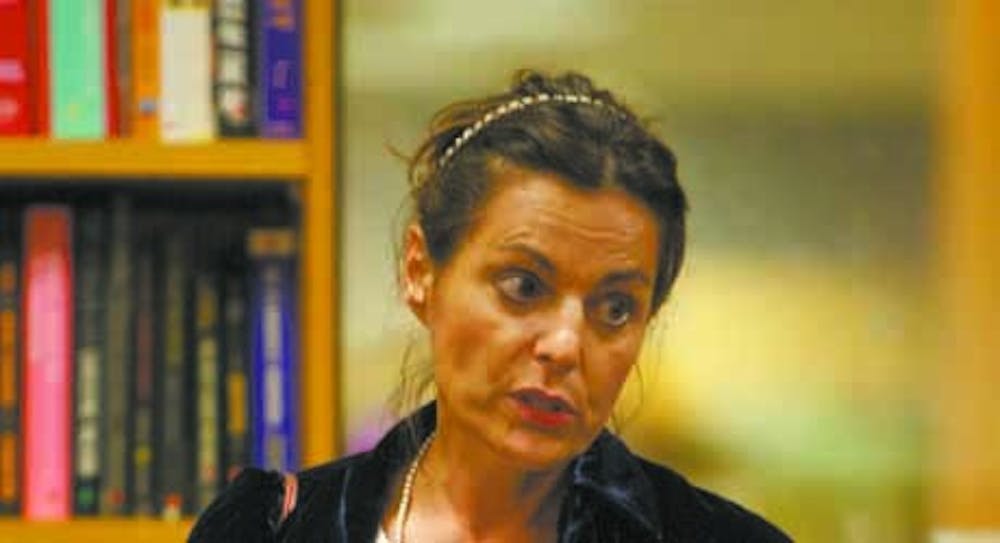Five years after Hurricane Katrina devastated New Orleans, one ASU professor is using her poetry skills to ensure that the stories of those affected by the tragedy live on.
English professor Cynthia Hogue presented excerpts of her book, a chronicle of the lives of Katrina evacuees that released last month, at Changing Hands Bookstore in Tempe Tuesday evening.
Hogue, along with collaborator and photographer Rebecca Ross, explained “When the Water Came: Evacuees of Hurricane Katrina” as a collection of interview-poems.
“I used only the words of interviewees,” Hogue said. “The photographs are not illustrations of the poems, they are with the dialogue of the poems.”
Hogue’s presentation showcased her interpretation of interviews along with a photograph slideshow with five of the 12 people featured in the book, including a Vietnam War veteran, casino bartender and an auto mechanic.
Three of the Katrina evacuees Ross interviewed for the book were in the audience.
“It’s great to see that people still care about what happened,” said Ohio State University English major Billy Hallal, who also attended the event. “It’s been five or six years, but it’s inspiring to hear stories of people driving all the way out there to help.”
Hogue, who lived in New Orleans about 10 years before Hurricane Katrina, said she began the project after interviewing colleagues who had relocated after the hurricane.
“I was casting about for a way to respond that wouldn’t be about my feelings,” Hogue said. “I asked one [of my colleagues — a Katrina survivor —] if he would let me interview him, and I decided to make a poem out of it.”
After receiving a project grant from the Arizona Commission for the Arts, Hogue joined with Ross.
The Katrina poems were originally intended to be part of a general poem collection Hogue was writing, but they eventually became a single book.
“What we realized, probably from the very start, was that one [poem or photograph] was not going to illustrate the other,” Hogue said. “The collaboration wasn’t about doing the actual work at the same time, it was going to be about the final work of art. You can show the photographs without the poems, and some of the poems went without photographs, but they really go together.”
Taking photos after the aftermath of the hurricane, and after the interviewees had already relocated became a challenge, Ross said.
“What we really had identified from the beginning was that there would be remnants, and we could trace the steps back to New Orleans,” Ross said. “Some of them had nothing, they just started completely over.”
Ross said she hoped that her photography, combined with the poems, had created a book that would become timeless, and not something just to be shared during anniversaries of Hurricane Katrina.
Author and screenwriter Karen O’Toole, who told of her effort to save thousands of pets in New Orleans in the aftermath of Hurricane Katrina, also wrote the book “Orphans of Katrina” and prefaced the presentation by Hogue and Ross.
Reach the reporter at mhendley@asu.edu





